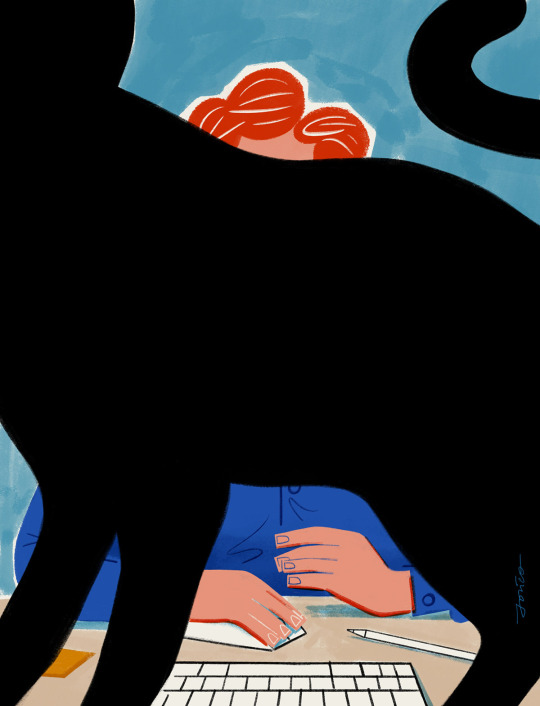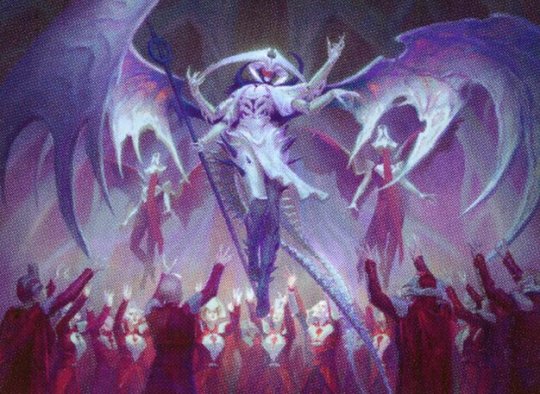#smart working
Text
THE 7️⃣ INCOME STREAMS
The average millionaire has 7 STREAMS of income.
1️⃣ ACTIVE INCOME
from performing a service.
2️⃣ ROYALTY INCOME
from others using your work.
3️⃣ PROFIT INCOME
from buying and selling.
4️⃣ INTEREST INCOME
from lending money $.
5️⃣ DIVIDEND INCOME
from owning stocks.
6️⃣ CAPITAL INCOME
when assets increase in value.
7️⃣ RENTAL INCOME
from renting out property.

7 notes
·
View notes
Text

#dank memes#meme#memes#dank meme#dankest memes#stolen memes#lobotomizedbrain#memesdaily#funny memes#normie meme#smart working#working from home
291 notes
·
View notes
Text

Home Office by Paweł Jońca on Bēhance 🐈⬛
6 notes
·
View notes
Text
smart uorghing
l'inviato in palestina preferirebbe tanto poter lavorare da gaza
#facezie#giuochi di parole#calembour#freddure#palestina#parole in libertà#cambio di lettera#smart working#gaza
4 notes
·
View notes
Text
Fa più danno l’intelligenza artificiale o l’imbecillità normale?
Alla fine della pandemia si è inneggiato al ritorno alla “normalità”, ma ammesso e non concesso, la normalità è tornare a lasciarsi vivere avulsi dai problemi reali.
La pandemia ha cercato di insegnarci che si può vivere diversamente, ma la “normalità” è continuare a demonizzare lo sviluppo tecnologico.
E’ di oggi la disposizione definitiva da parte del Ministero della Salute, perché le ricette…

View On WordPress
2 notes
·
View notes
Text
io e te con me in smart working e tu ginocchia a terra sotto la scrivania, ma ahimè è solo un desiderio.
3 notes
·
View notes
Text
Smart Work is Better Than Hard Work

In a world that often glorifies the idea of burning the midnight oil and putting in long hours, the age-old adage "Work hard, play hard" has been a mantra for success. However, a paradigm shift is occurring, and a new philosophy is gaining ground – the notion that smart work trumps hard work. In this blog, we'll explore why working smart is becoming increasingly essential in today's dynamic and fast-paced environment.
Understanding Smart Work:
Smart work involves optimizing your efforts to achieve maximum results with minimum input. It's about working strategically, making informed decisions, and leveraging resources efficiently. While hard work emphasizes sheer effort and dedication, smart work integrates intelligence and efficiency into the equation.
Adaptability in the Digital Age:
The digital age has ushered in an era where adaptability and innovation are paramount. The ability to quickly grasp new concepts, embrace technological advancements, and adapt to changing circumstances is a hallmark of smart workers. In a world where information is readily available at our fingertips, those who can synthesize, analyze, and apply knowledge effectively are the ones who stand out.
Efficiency and Time Management:
One of the key aspects of smart work is efficient time management. Rather than focusing solely on the number of hours spent on a task, smart workers prioritize tasks based on their importance and impact. They use tools and techniques to streamline processes, eliminate unnecessary steps, and allocate time judiciously. This not only enhances productivity but also reduces stress and burnout.
Innovation and Creativity:
Smart work encourages innovation and creativity. Instead of following a rigid set of rules, smart workers are open to exploring new ideas and approaches. They understand that there is often more than one way to achieve a goal and are willing to think outside the box. This flexibility and creativity contribute to finding novel solutions and staying ahead in a competitive landscape.
Quality Over Quantity:
While hard work may focus on sheer volume, smart work emphasizes the quality of output. Smart workers prioritize tasks that align with their goals and contribute meaningfully to the overall objective. This selective approach ensures that the time and effort invested yield the desired results, fostering a sense of accomplishment and satisfaction.
Balance and Well-being:
One of the pitfalls of relentless hard work is the risk of burnout and compromised well-being. Smart work advocates for a balanced approach that takes into account both professional and personal aspects of life. By setting realistic goals, delegating tasks, and maintaining a healthy work-life balance, smart workers can sustain their productivity over the long term.
Conclusion:
In the evolving landscape of the modern workplace, the adage "Smart work is better than hard work" holds true. While hard work remains important, the ability to work smartly – incorporating efficiency, adaptability, innovation, and a balanced approach – is increasingly becoming the key to success. As individuals and organizations navigate the challenges of the digital age, embracing the principles of smart work can pave the way for sustainable success and personal fulfillment.
1 note
·
View note
Text
Rappresentanza delle donne e l’impegno della European Women’s Lobby alle elezioni di giugno 2024
LEF-Italia ha tracciato un piano ratificato a Bruxelles con la vigilanza degli europarlamentari italiani che avranno l’incarico di promuovere il nostro Paese in sede europea. Per raggiungere gli obiettivi, la Lobby Europea ha definito fino al 2026 un pacchetto di proposte per equilibrare la rappresentanza femminile in una prospettiva di europa democratica e inclusiva, nonché offrire una visione dei contesti sociali, politici ed economici per rendere vincolante una legge europea anche nei paesi in cui la donna è poco valorizzata.

Rossella Poce, Presidente Lef-Italia

On. Beatrice Covassi del gruppo S&D
#BEATRICE COVASSI#CONVENZIONE DI ISTANBUL#CRISTINA MONTAGNI#DISCIPLINE STEM#EUROPEAN WOMEN’S LOBBY#GENDER PAY GAP#LAVORO#LEF ITALIA#MARIA LUDOVICA BOTTARELLI#OSSERVATORIO VITTIMIZZAZIONE SECONDARIA#PARI OPPORTUNITÀ#PARITÀ DI GENERE#PARLAMENTO EUROPEO#PIATTAFORMA DI PECHINO#ROSSELLA POCE#SMART WORKING#STEREOTIPI E PREGIUDIZI#STUPRO#VIOLENZA DI GENERE#WOMEN FOR WOMEN ITALY
1 note
·
View note
Text
Eppure in Italia siamo ancora indietrissimo
#smart#smart working#work#ambiente#leggere#parole#scrivere#pensieri#scrittura#lettura#scrivimi#italia#articolo
0 notes
Text
PACHYDERMIC WORKING
Vi ricorderete tutti quando durante la pandemia molti lavoratori furono costretti al cosiddetto smart working. Naturalmente in quei giorni dovendo fare di necessità virtù, tutti o quasi tutti , scoprirono che esisteva un modo di lavorare da casa che produceva gli stessi risultati, anzi migliori. A scuola la questione fu molto più complicata, poiché, a fronte di questa esigenza impellente, si era scarsamente attrezzati, benché fu proprio la pandemia a far cambiare molte inveterate e arcaiche abitudini. Un discorso a sé andrebbe fatto per la “didattica a distanza”, ma non è un discorso che mi compete e che necessità di competenze specifiche che non sono le mie. A dire il vero non so bene quali siano nella fattispecie nemmeno le mie “competenze” conosco solo quali sono i miei “doveri” e a quelli mi attengo. Durante quei febbrili giorni i ministri del Governo Conte si dissero convinti che non solo lo smart working ci avrebbe permesso di salvare il paese, ma che addirittura non si sarebbe potuto pensare ad alcuna forma di lavoro diversa per il futuro. Naturalmente la convinzione era supportata da studi e pareri dei famosi “esperti” che non mancano mai, anzi abbondano. Il dibattito ebbe inizio e, come tutti i dibattiti di quel
periodo, si sciolse come neve al sole passata l’emergenza. In realtà esistono davvero studi molto circostanziati che dimostrano e argomentano che lo smart working è una forma di lavoro intelligente, economica, efficace e, come si dice oggi “sostenibile”. Citerò solo uno di questi studi, quello del sociologo del lavoro Domenico De Masi, una vera autorità in materia che ha scritto un poderoso volume edito da Marsilio e reperibile anche in e.book, dal titolo appunto “Smart working”. Naturalmente non tardarono le polemiche: i ristoranti non avrebbero più guadagnato nella pausa pranzo, i rapporti umani si sarebbero azzerati, gli immobiliaristi non avrebbero più affittato gli uffici, i lazzaroni avrebbero preso il potere, insomma l’Apocalisse. Ieri, con il canonico ritardo, è stato firmato il nuovo contratto collettivo nazionale del personale della scuola, scaduto se non ricordo male nel 2019. Tra le novità del contratto, a parte i soliti 80-90 euro di aumenti per gli impiegati della scuola e le solite belle parole sulle centralità dei docenti ecc. ecc. avrebbero dovuto esserci (così era stato promesso dai governi che nel frattempo si sono succeduti), la norma per lo smart working. La norma però è sparita e ci si limita a parlare di una non meglio identificata “regolamentazione delle attività non didattiche a distanza dei docenti”. Cosa sia non lo so e non voglio saperlo. Invece vorrei sapere perché non è stato previsto lo smart working per gli impiegati della scuola. Non lo saprò mai ma mi piacerebbe tanto. Ci sono operazioni che svolgono in un ufficio scolastico, che se fatte da casa o fatte dall’ufficio producono lo stesso risultato: l’adozione dei libri di testo, le statistiche e le rilevazioni, moltissime operazioni sul personale della scuola, quasi tutte le operazioni di contabilità, potrei continuare. Operazioni per le quali il contatto umano non serve affatto, anzi è spesso dannoso in termini di concentrazione e di velocità delle operazioni. Sembra però che i dirigenti scolastici ministeriali di alto livello credano che la presenza fisica del lavoratore sia necessaria per poter operare, oltre che un controllo anche una sorta di affermazione del “potere”. Non è una argomentazione risibile, anche qui fior fior di sociologi hanno affermato che questo non è un aspetto di secondaria importanza. Insomma che i lavoratori non docenti della scuola, si accontentino della mancetta quinquennale e non disturbino il manovratore. Naturalmente anche i sindacati su questo (anche su questo) hanno da dire poco o nulla, al di là di generiche affermazioni di principio. Essendo ormai quasi al termine della mia avventura nella scuola (chiamarla “carriera” vorrebbe dire usare un termine improprio), ho avuto la soddisfazione di essermi sbarazzato di penne, fotocopie, cartacce varie e di aver digitalizzato i fascicoli personali di centinaia e centinaia di studenti, cosa che avrei potuto fare anche dal divano di casa mia. Google guadagna circa 81 dollari al secondo e più della metà dei suoi dipendenti lavorano da casa. E a scuola? A scuola si guarda Google con sospetto…

0 notes
Text
Smart working e consumi a picco: l’infografica che svela
Smart working con i nuovi prezzi di luce e gas, condizionatori accesi per sfuggire al grande caldo e sempre più elettrodomestici e gadget tech collegati alla domotica: gli italiani arrivano all’estate e vogliono ottimizzare i consumi.
Home Tour
Ecco allora che VIVIenergia ‒ uno dei principali operatori nel mercato dell’energia in Italia ‒, con l’infografica “L’home tour del risparmio energetico”,…

View On WordPress
0 notes
Text
TUMBLR POST EDITOR WON'T LET ME TITLE THIS POST ANYMORE SO I GUESS THIS IS THE TITLE NOW. WEBBED SITE INNIT
So let's say you grew up in the nineties and that The Lion King was an important movie to you. Let's say that the character of Scar - snarling, ambitious, condescending, effeminate Scar - stirred feelings in you which you had no words for as a child. And then let's say, many years later, you're talking about it with a college friend, and you say something like, "oh man, I think Scar was some sort of gay awakening for me," and she fixes you with this level stare and says, "Scar was a fascist. What's the matter with you?"

The immediate feeling is not unlike missing a step: hang on, what's happening, what did I miss? You knew there were goose-stepping hyenas in "Be Prepared," but you didn't think it mattered that much. He's the bad guy, after all, and the movie's just pointing it out. Your friend says it's more than that: the visuals of the song are directly referencing the Nuremberg rallies. They're practically an homage to Riefenstahl. This was your sexual awakening? Is this why you're so into peaked caps and leather, then? Subliminal nazi kink, perhaps?
And then one of your other friends cuts in. "Hold up," he says, "let's think about what Scar actually did in the movie. He organized a group of racialized outcasts and led them against a predatory monarchy. Why are you so keen to defend their hereditary rule? Scar's the good guy here." The conversation immediately descends into a verbal slap fight about who the real bad guy is, whether Scar's regime was actually responsible for the ecological devastation of the Pride Lands, whether the hyenas actually count as "racialized" because James Earl Jones voiced Mufasa after all. Your Catholic friend starts saying some strange and frankly concerning shit about Natural Law. Someone brings The Lion King 2 into it. You leave the conversation feeling a little bit lost and a little bit anxious. What were we even talking about?
INTRODUCING: THE DITCH
There is a way of reading texts which I'm afraid is pervasive, which has as its most classical expression the smug obsession with trivia and minutiae you find in a certain vein of comic book fan. "Who was the first Green Lantern? What was his weakness? Do you even know the Green Lantern Oath?" It eschews the subjective in favor of definitively knowable fact. You can't argue with this guy that, say, Alan Scott shouldn't really count as the first Green Lantern because his whole deal is so radically different from the Hal Jordan/John Stewart/Guy Gardner Corps-era Lanterns, because this guy will simply say "but he's called Green Lantern. Says so right on the cover. Checkmate." This approach to reading a text is fundamentally 1) emotionally detached (there's a reason the joke goes, oh you like X band? name three of their songs - and not, which of their songs means the most to you? which of them came into your life at exactly the right moment to tell you exactly what you needed to hear just then?) and 2) defensive. It's a stance that is designed not to lose arguments. It says so right on the cover. Checkmate.
And then you get the guys who are like "well obviously Bruce Wayne could do far more as a billionaire to solve societal problems by using his tremendous wealth to address systemic issues instead of dressing up as a bat and punching mental patients in the head," and these guys have half a point but they're basically in the same ditch butting heads with the "well, actually" guys, and can we not simply extricate ourselves from the ditch entirely?
So, okay, let's return to our initial example. Scar is portrayed using Nazi iconography - the goose-stepping, the monumentality, the Nuremberg Lichtdom. He is also flamboyant and effete. He unifies and leads a group of downtrodden exiles to overthrow an absolute monarch. He's also a self-serving despot on whose rule Heaven Itself turns its back. You can't reconcile these things from within the ditch - or if you can, the attempt is likely to be ad-hoc supposition and duct tape.
Instead, let's ask ourselves what perspective The Lion King is coming from. What does it say is true about the world? What are its precepts, its axioms?
There is a natural hierarchical order to the world. This is just and righteous and the way of things, and attempts to overthrow this order will be punished severely by the world itself.
Fascism is what happens when evil men attempt to usurp this natural order with the aid of a group or groups of people who refuse to accept their place in the order.
There exists an alternative to defending and adhering to one's place in the natural order - it consists only of selfish spineless apathy.
Manliness is an essential quality of a just ruler. Unmanliness renders a person unfit for rule, and often resentful and dangerous as well.
And isn't that interesting, laid out like that? It renders the entire argument about the movie irrelevant (except for whatever your Catholic friend was on about, since his understanding of the world seems to line up with the above precepts weirdly well.) It's meaningless to argue about whether Scar was a secret hero or a fascist, when the movie doesn't understand fascism and has a damn-near alien view of what good and evil are.
There's always gonna be someone who, having read this far, wants to reply, "so, what? The Lion King is a bad movie and the people who made it were homophobes and also American monarchists, somehow? And anyone who likes it is also some sort of gay-bashing crypto-authoritarian?" To which I have to reply, man, c'mon, get out of the ditch. You're no good to anyone in there. Take my hand. I'm going to pull on three. One... two...
SO PHYREXIA [PAUSE FOR APPLAUSE, GROANS]
We're talking about everyone's favorite ichor-drooling surgery monsters again because there was a bit in my ~*~seminal~*~ essay Transformation, Horror, Eros, Phyrexia which seemed to give a number of readers quite a bit of trouble: namely, the idea that while Phyrexia is textually fascist, their aesthetic is incompatible with real-world fascism, and further, that this aesthetic incompatibility in some way outweighs the ways in which they act like a fascist nation in terms of how we think of them. I'll take responsibility here: I don't think that point is at all clear or well-argued in that essay. What I was trying to articulate was that the text of Magic: the Gathering very much wants Phyrexia to be supremely evil and dangerous fascists, because that makes for effective antagonists, but in the process of constructing that, it's accidentally encoded a whole bunch of fascinating presuppositions that end up working at cross-purposes with its apparent aim. That's... not that much clearer, is it? Hmm. Why don't I just show you what I mean?

Atraxa, Grand Unifier (art by Marta Nael)
In "Beneath Eyes Unblinking," one of the March of the Machine stories by K. Arsenault Rivera, there's a fascinating and I think revealing passage in which Atraxa (big-deal Phyrexianized angel and Elesh Norn's lieutenant) has a run-in with an art museum in New Capenna. The first thing I want to talk about is that, in this passage, Atraxa has no understanding of the concept of "beauty". A great deal of space in such a rushed storyline is devoted to her trying to puzzle out what beauty means and interrogating the minds of her recently-compleated Capennan aesthetes to try and understand it. In the end, she is unable to conceive of beauty except as "wrongness," as anathema.
So my first question is, why doesn't Atraxa have any idea of beauty? This is nonsense, right? We could point to a previous story, "A Garden of Flesh," by Lora Gray, in which Elesh Norn explicitly thinks in terms of beauty, but that's a little bit ditchbound, isn't it? The better argument is to simply look at Phyrexian bodies, at the Phyrexian landscape, all of which looks the way it does on purpose, all of which has been shaped in accordance with the very real aesthetic preferences of Phyrexians. How you could look at the Fair Basilica and not understand that Phyrexians most definitely have an idea of beauty, even if you personally disagree with it, is baffling. This is a lot like the canonical assertion that Phyrexians lack souls, which is both contradicted elsewhere in canon and essentially meaningless, given Magic's unwillingness or inability to articulate what a soul is in its setting, and as with this, it seems the goal is simply to dehumanize Phyrexians, to render them alien, even at the cost of incoherence or internal contradiction.
Atraxa's progress through the museum is fascinating. It evokes the 1937 Nazi exhibit on "degenerate art" in Munich, but not at all cleanly. The first exhibit, which is of representational art, she angrily destroys for being too individualistic (a point of dissonance with the European fascist movements of the 20th century, which formed in direct antagonism to communism.) The second exhibit, filled with abstract paintings and sculptures, she destroys even more angrily for having no conceivable use (this is much more in line with the Nazi idea of "degenerate art", so well done there.) The third exhibit is filled with war trophies and reconstructions from a failed Phyrexian invasion of Capenna many years prior, which she is angriest of all with (and fair enough, I suppose.) But then, after she's done completely trashing the place, she spots a number of angel statues on the cathedral across the plaza, and she goes apeshit. In a fugue of white-hot rage, she pulverizes the angel heads, and here is where I have to ask my second question:
Why angels? If you are trying to invoke fascist attitudes toward art, big statues of angels are precisely the wrong thing for your fascist analogues to hate. Fascists love monumental, heroic representations of superhuman perfection. It's practically their whole aesthetic deal. I understand that we're foreshadowing the imminent defeat of Phyrexia at the hands of legions of angels and a multiversal proliferation of angel juice, but that just leads to the exact same question: why angels? To the best of my knowledge, the Phyrexian weakness to New Capennan angel juice is something invented for this storyline. They have, after all, been happily compleating angels since 1997. We could talk about the in-universe justification for why Halo specifically is so potent, but I don't remember what that justification is, and also don't care. Let's not jump back in the ditch, please. The point is, someone decided that this time, Phyrexia would be defeated by an angelic host, and what does that mean? What is the text trying to say? What are its precepts and axioms?
Let me ask you a question: how many physically disabled angels are there in Magic: the Gathering? How about transsexual angels? How many angels are there, on all of the cards that have ever been printed for Magic: the Gathering, that are even just a bit ugly? Do you get it yet? Or do you need me to spell it out for you?
SPELLING IT OUT FOR YOU
There is a kind of body which is bad. It is bad because it has been significantly altered from its natural state, and it is bad because it is repellent to our aesthetic sensibilities.
The bad kind of body is contagious. It spreads through contact. Sometimes people we love are infected, and then they become the bad kind of body too.
There is a kind of body which is good. It is good because it is pleasing to our aesthetic sensibilities, and it is good because it is unaltered from its (super)natural state.
A happy ending is when all the good bodies destroy or drive into hiding all of the bad bodies. A happy ending is when the bad bodies of the people we love are forcibly returned to being the good kind of body.
Do you get it now?
ENDNOTES
It's worth noting that the ditch is very similar to the white American Evangelical hermeneutics of "the Bible says it. I believe it. That settles it," the defensive chapter-and-verse-or-it-didn't-happen approach to reading a text, what Fred Clark of slacktivist calls "concordance-ism". I don't think that's accidental. We stand underneath centuries of people reading the Bible very poorly - how could that not affect how we read things today? We are participants in history whether we like it or not.
I sincerely hope I haven't come across as condescending in this essay. Close reading is legitimately difficult! They teach college courses on this stuff! And while it is frustrating to have my close readings interrogated by people who... aren't doing that, like. I do get it. I find myself back in the ditch all the time. This stuff is hard. It is also, sorry, crucial if you intend to say something about a text that's worth saying.
I also hope I've communicated clearly here. Magic story is sufficiently incoherent that trying to develop a thesis about it often feels like trying to nail jello to the wall. If anyone has questions, please ask them! And thank you for reading. Next time, we'll probably do the new Eldraine set.
#phyrexia#not defining the ditch except by implication#thanks to all the very smart vorthoi on the flavor text discord server for helping me work through my thoughts on fascism and phyrexia#this is technically the march of the machine review also#or as much of one as i care to do
5K notes
·
View notes
Text

Creating a passive income stream is a smart way to earn money without having to actively work for it. Continuous Earnings allow you to make money while you sleep, travel, or spend time with your family. If you’re a beginner looking for unique ways to generate passive income, then you’ve come to the right place. In this post, we’ll explore some creative ideas that you can start with little to no capital.
0 notes
Text
they should invent falling alseep that doesnt take 3 hours
#i am. strugling#my post#hAvE yOu TrIeD pUtTiNg YoUr pHoNe DoWn YES you dumb piece of shit. you stupid asshole obviously ive tried that#but it didnt work for 3 hrs so now im bacj here#sorry its just every time i ask falling alseep tips its that. like jfc man#like eeeeeeverybody thinks theyre so smart and smug and shit when they say it i just wanna sleeeepppp goddddd
29K notes
·
View notes
Text
Smart Work Plus Consistency
What approach do you choose whether hard work or smart work and consistency? The prefix added to the work signifies the approach for dealing with the work. The prefix added indicates the approach for completing the work but the work always remains the same whatever the prefix is added. I used to practice a hard work approach while dealing with any work. It's a fact and I am glad to share it with you guys. I believe in optimizing the process which can lead to a change in the resulting outcome so I am transiting from the hard work approach to the smart and Consistency in the work.
Hard work implementation result outcome!
The same approach will lead to the same result outcome so let's change the approach which will have a different result outcome. It will open a new way of dealing with the work which will result in new learning. The application of hard work as an approach will increase your capacity to deal with more work of a similar type and you will have a better command over the work. One of the limitations of the hard work which I could face is that its application is restricted to a similar type of method of work.
Importance of smart and consistent work!
The small change in the method would disrupt the entire process which you are doing all the time so here the smart work with Consistency comes into the picture. The situation is demanding to adapt to the change required in the method of doing the work. The smart work approach will help you to optimize the process of work effectively which will lower time consumption. The approach will help you to learn and grasp the concepts very quickly which will help you deal with more work within the same time span. The work method is changing so you require to approach a smart way and consistent efforts are required for becoming a master of the work. You need to understand the concept from the root level and it will require patience in the process. It will help you get substantial control over the process and you would be able swiftly to adapt to the variable requirement. You would be able to deal with the situation efficiently by providing inputs that will elevate your performance. The approach requires consistent practice for adapting to the method.
0 notes